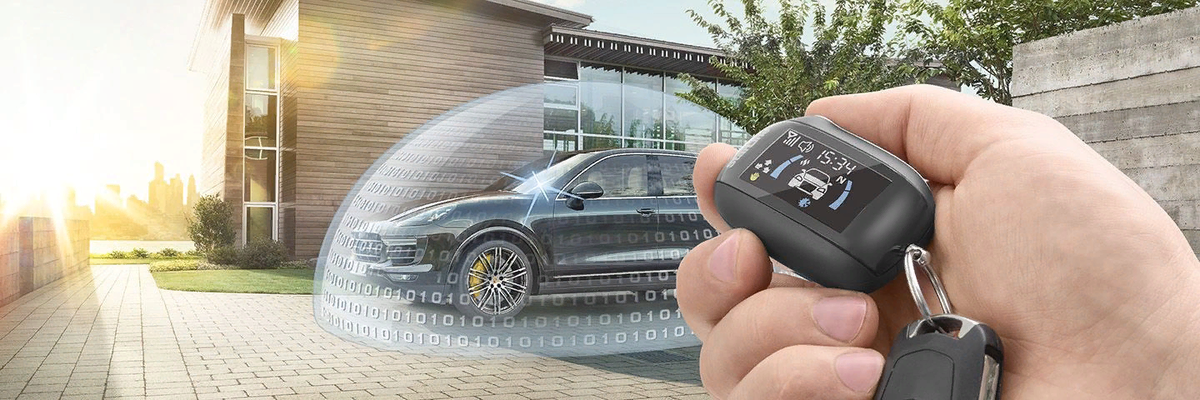Debunking the Myths: Common Misconceptions about Car Alarm Systems
Introduction
With the evolution of technology, car alarm systems have become a standard feature in most modern vehicles, aiming to provide safety and security. Yet, as these systems become more sophisticated, there’s also a rise in myths and misconceptions surrounding their functionality and reliability. From their primary purpose to their effectiveness, misconceptions abound.
In this article by Discount Car Audio, we’re taking the driver’s seat to steer through these myths and shed light on the actual truths behind car alarm systems.
· Car Alarms Only Prevent Theft
While many believe that car alarm systems serve only as theft deterrents, the modern-day reality paints a more versatile picture. Beyond their quintessential blaring sirens signaling unauthorized access, today’s car alarms have evolved into multi-faceted security tools. They offer features such as impact detection for minor collisions, remote alerts directly to owners’ smartphones, and even engine immobilization to thwart hot-wiring attempts. These systems are not just about theft anymore; they encompass a holistic approach to vehicle security and owner peace of mind.
· All Car Alarms Are the Same
A prevalent myth suggests that all car alarms are identical in functionality and design. However, the truth is far more nuanced. While basic car alarms might only offer simple sound alerts, advanced systems in today’s market offer a myriad of features including remote start capabilities, smartphone integration for real-time alerts, proximity sensors, and even GPS tracking. Furthermore, the compatibility and integration methods can vary depending on the vehicle’s make and model. Thus, lumping all car alarms into a single category oversimplifies a complex and diverse range of security solutions tailored to different needs and preferences.
· A Loud Noise Is Enough to Deter Thieves
It’s a widespread belief that the primary function of a car alarm, the blaring siren, is sufficient to deter potential thieves. While this loud alert can indeed draw attention and might deter amateur criminals, seasoned thieves are not so easily dissuaded. Modern burglars are often familiar with methods to quickly disable or bypass these noise-centric alarms. As a result, the most effective car alarm systems now incorporate additional features such as engine immobilization, real-time mobile alerts, and GPS tracking, ensuring that a vehicle is not solely reliant on noise for its protection. In essence, while loud sirens have their place, a multifaceted approach to car security is what truly stands between thieves and their targets.
· Modern Cars Don’t Need Additional Alarm Systems
Many believe that with the advanced technology integrated into modern vehicles, there’s no need for additional alarm systems. While it’s true that contemporary cars often come equipped with basic security features, they might not offer comprehensive protection. Thieves continuously evolve their tactics, capitalizing on vulnerabilities in factory-installed systems. An aftermarket alarm system can bolster a vehicle’s security by adding layers of protection such as advanced sensor technologies, real-time mobile alerts, GPS tracking, and even cloud-based controls. Ultimately, while modern cars do have enhanced built-in security, supplemental alarm systems provide an added safeguard, ensuring that vehicles remain several steps ahead of potential threats.
· Car Alarms Always Go Off Accidentally
A recurring stereotype about car alarms is that they’re notorious for triggering false alarms, be it a gust of wind or a cat brushing past the vehicle. While older or less sophisticated systems might have been prone to such accidental activations, today’s advanced car alarm systems have come a long way. They’re equipped with smarter sensors and calibrated algorithms that discern between potential threats and benign disturbances. Modern systems allow for customized sensitivity settings, ensuring that the alarm responds appropriately to genuine security breaches while largely ignoring non-threatening events. So, while the occasional false alarm might still occur, it’s far from the norm with contemporary car alarm technology.
· Installing Alarm Systems Will Void My Car’s Warranty
A common misconception held by many car owners is that adding an aftermarket alarm system will void their vehicle’s warranty. In reality, the Magnuson-Moss Warranty Act ensures that car manufacturers cannot void a vehicle’s warranty simply due to aftermarket additions, including alarm systems, unless they can conclusively prove that the addition directly caused damage to the vehicle. However, it’s crucial to have the alarm system professionally installed to avoid potential mishaps and ensure it integrates seamlessly with the car’s existing electronics. In essence, installing a quality alarm system, when done correctly, should not risk your vehicle’s warranty protections.
Conclusion
Car alarm systems are an essential component in ensuring your vehicle’s safety and your peace of mind. While myths might cloud the facts, understanding the truths about these systems can guide you in making informed decisions. Remember, it’s not just about the sound of an alarm but the layers of protection it offers.
Call to Action
Eager to give your car the protection it deserves? Explore a curated range of efficient and reliable car alarm systems at Discount Car Audio. Navigate through the world of security with confidence. Shop now, and let your car rest safely tonight!




